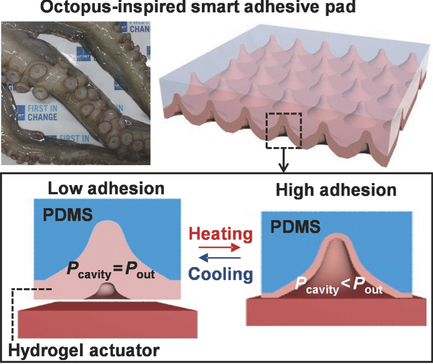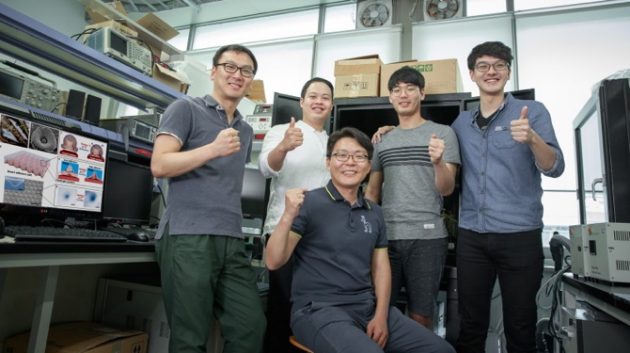
Octopus tentacles inspire new adhesive technology
By Canadian Packaging staff
Design & Innovation KIST Korea Institute of Science and Technology octopus tentacle adhesion octopus-inspired smart adhesive pads Ulsan National Institute of Science and Technology UNISTUlsan National Institute of Science and Technology seeks to engineer octopus-inspired smart adhesive pads.
Scientists from UNIST ( Ulsan National Institute of Science and Technology) in South Korea and KIST (Korea Institute of Science and Technology) have found a way to make flexible pressure sensors by mimicking the suction cups of octopus tentacles.
The teams says they studied the structure and adhesive mechanism of octopus suckers and then developed a new type of suction-based adhesive material.
“Although flexible pressure sensors might give future prosthetics and robots a better sense of touch, building them requires a lot of laborious transferring of nano- and microribbons of inorganic semiconductor materials onto polymer sheets,” the team says.
With the octopus tentacles, each suction cup has a cavity whose pressure is controlled by the surrounding muscles. The octopus can make the cavity thicker or thinner, which decreases or increases air pressure in the suction cup, allowing for releasing or adhesion.
The South Korean team mimicked the muscle action of the tentacle’s suction cup to create octopus-inspired smart adhesive pads.

Schematic representation of microcavity arrays within a octopus-inspired smart adhesive pad.
They used the rubber-like polydimethylsiloxane (PDMS) to create an array of microscale suckers, which included pores that are coated with a thermally responsive polymer to create sucker-like walls.

At the UNIST lab: Prof. Hyunhyub Ko (center) and his research team (back row from left): Doo-Seung Um, Hochan Lee, Seongdong Lim, and Youngsu Lee.
The team realized that to replicate the organic nature of the octopus muscle, heat could be applied.
At room temperature, the walls are open, but when heated to 32C, the walls contract creating suction—adhesion to a material.
The team says that the smart adhesive pads could be used as a substrate for wearable health sensors such as Band-Aid bandages, or as sensors that stick to the skin at normal body temperature, but fall off when rinsed under cold water.
Of course… Canadian Packaging is sure some smart individuals can find other uses for this technology.
Octopus image purchased via www.fotolia.com.
Advertisement

